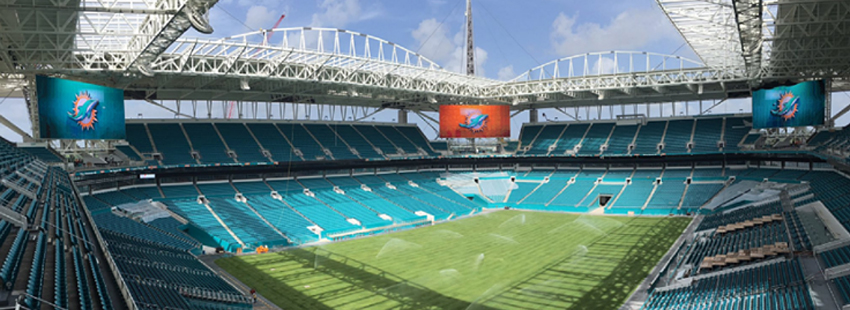As the cold weather settles in and any hope for one more day by the beach is officially crossed off your list, we all collectively stand in awe, wondering where summer 2016 went.
Rivaling the rise in heat that the season is known for, summer 2016 heated up the sports world hosting a feast of summer soccer, the Rio Olympic Games, and a few notable stadium deals that shifted the sports landscape for years to come.
“This summer we’ve seen an unprecedented volume of sports competition on a global level,” said Executive Creative Director Brian Quarles. “It’s been incredible to watch how brands have responded to marketing consumers on a truly comprehensive level, and what lessons can be learned for future opportunities in the sports market.”
Let’s take a look at some of the most prominent sports moments from this past season.
The Summer of Soccer
Looking to make a big splash in its 100th year, Copa America selected the United States to host the anniversary event, marking the first time in its storied history that a non-South American team played as the home side. The US was an easy sell for the competition, with 10 giant American Football stadiums ready to accommodate the 16 teams – the tournament broke a myriad of attendance records, setting an average matchday attendance of 46,370 (nearly 45% higher than the previous competition in Chile).
Though it’s important to note the record breaking numbers are in part due to the expanded stadium size that the United States offered (no stadium in Chile has a capacity over 48,000 people). It’s also clear that not all of the 32 matches played experienced a wild “sold-out” atmosphere. While Mexico saw the biggest crowd of the tournament, with 83,000 fans crowding into the Rosebowl, only 11,000 fans showed up to see Peru draw Ecuador in Orlando, 2-2. In total, an average tournament match was at 66% capacity, meaning 1 in 3 seats remained empty during the summer showdown.
The success and notoriety of tournaments like these however make ascension and growth all the more probable in the United States, as major established soccer powers like Argentina and the champions Chile do battle with budding soccer sensations on the US National Team.
Rio Olympic Games
While the 2016 Summer Olympic Games belonged to the big name athletes like Usain Bolt and Michael Phelps, young break-out stars like gymnast Simone Biles and swimmer Katie Ledecky stole the show and made these summer games one to remember for the ages.
Unfortunately for NBC, while this year produced a compelling number of moments and sports narratives, the broadcast company lost big on the advertising, with initial Nielsen numbers posting a staggering 25% drop in the coveted 18-49 age viewership ratings from the previous 2012 Summer Games in London.
So why such a big drop? The broadcast giant’s decision to not air marquee events live on TV and time shift them as stale content during primetime hours, proved to be an ineffective way to generate “must-see” TV. In a world where results and live content are available at the flick of a button, time shifting events with the assumption that people will still be as engaged as live competition, is a gamble that ultimately did not pay off for NBC.
And all the while, the face of the Olympics was Ryan Lochte – for all the wrong reasons – much to the chagrin of weary viewers back home who wanted more coverage of Biles, Phelps, Ledecky, and crew.
Stadium Name Shifts
This summer also brought along several new stadium naming rights deals that will ultimately change the way refer to some of our favorite places to watch sports. The Atlanta Falcons announced their partnership with Mercedes Benz, who purchased the naming rights to their in-progress stadium in downtown Atlanta for an undisclosed amount. The stadium, reportedly worth 1.4 billion dollars will be branded under the Mercedes logo for the first 25 years of operation, making it the second stadium in the NFC South with naming rights from the German car company (The New Orleans Saints also have a partnership with Mercedes Benz).
The Miami Dolphins also inked a new contract with Hard Rock, reportedly worth 250 million dollars for over 18 years and will cover new canopy renovations to what will be the site of the 2020 Super Bowl.
Chicago’s Southside staple, the White Sox also underwent a name overhaul this summer, ending their contract with U.S. Cellular for a new partnership with Guaranteed Rate Loans. The deal, reportedly worth 25.4 million dollars will provide no net new investment in the franchise according to sources in the Chicago Tribune, highlighting that the deal will likely be a continuation of investment from what U.S. Cellular had committed. So will “the cell” become “the rent”? Most still haven’t shifted from the “old Comiskey Park” moniker.
With summer of 2016 now in the rear view mirror, it’s safe to say that this year was one for the ages. Have any summer sports moments we missed? Join the conversation and post below!

